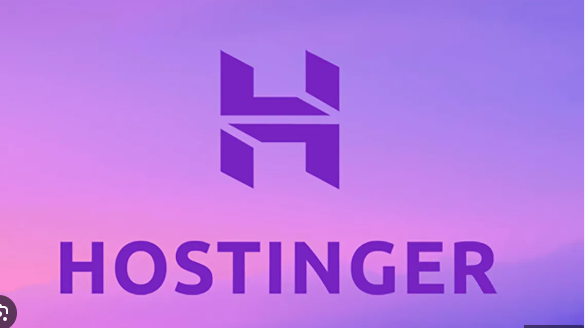Hostinger is a versatile hosting platform that accommodates a wide array of content and services, catering to the diverse needs of bloggers, entrepreneurs, businesses, and developers. Let’s delve into the possibilities and explore what you can host on Hostinger across its various hosting plans.
1. Websites and Blogs: Hostinger offers shared hosting ideal for hosting websites and blogs. Whether you’re a beginner or an experienced webmaster, their shared hosting plans provide an accessible and cost-effective way to host personal blogs, business websites, portfolios, and more. With user-friendly control panels like cPanel or hPanel, managing your website becomes intuitive and efficient.
2. E-commerce Stores: For those looking to set up an online store, Hostinger’s e-commerce hosting solutions come into play. These plans often include features specifically optimized for e-commerce, such as SSL certificates, one-click installers for popular shopping cart software like WooCommerce or Magento, and robust security measures to safeguard customer data.
3. Content Management Systems (CMS): Hostinger supports various Content Management Systems like WordPress, Joomla, Drupal, and more. With easy installation options, you can quickly set up and manage your preferred CMS, leveraging their functionalities to create and customize your website or blog according to your needs.
4. Domain Hosting and Registration: Apart from hosting, Hostinger offers domain registration services. You can register new domains or transfer existing ones to their platform. The domain management tools facilitate DNS configuration, domain redirection, and WHOIS privacy settings, ensuring a seamless domain hosting experience.
5. Development Staging: Developers benefit from Hostinger’s staging environment, allowing them to create a copy of their website for testing and development purposes without affecting the live site. This feature is particularly useful for experimenting with updates, themes, or plugins before deploying changes.
6. Email Hosting: Hostinger provides email hosting services, enabling users to create professional email addresses using their domain name. With features like spam filtering, autoresponders, and IMAP/POP3 support, managing business communication becomes efficient and reliable.
7. Virtual Private Servers (VPS) and Cloud Hosting: For websites demanding more resources and control, Hostinger’s VPS and Cloud hosting options offer scalability and flexibility. VPS plans provide dedicated resources, while Cloud hosting ensures high availability and scalability, suitable for high-traffic websites or resource-intensive applications.
8. Game Servers and Applications: Hostinger extends its services to game servers and application hosting, catering to gamers and developers. With optimized server configurations and low-latency networks, hosting game servers becomes seamless, ensuring an enhanced gaming experience.
In conclusion, Hostinger’s versatile hosting options cover a broad spectrum of hosting needs, from basic websites to complex applications and beyond. Whether you’re an individual, a small business, or a developer, Hostinger offers a robust platform to host various content and services efficiently and reliably.
1. Websites
Hostinger is an excellent platform to host all kinds of websites, from personal blogs to e-commerce sites and corporate pages. Its robust infrastructure and user-friendly interface make it perfect for hosting dynamic and static websites alike.
2. WordPress Sites
One of Hostinger’s strengths lies in its optimized hosting for WordPress. You can effortlessly host WordPress blogs or websites, taking advantage of their specialized plans tailored for this popular CMS.
3. E-commerce Stores
For those venturing into online retail, Hostinger supports e-commerce platforms like WooCommerce and Magento. With its reliable hosting services, you can set up and run your online store smoothly.
4. CMS-Based Websites
Besides WordPress, Hostinger accommodates other content management systems (CMS) like Joomla and Drupal. You can create and host feature-rich websites using these platforms with ease.
5. Web Applications
Developers can leverage Hostinger’s infrastructure to host web applications. Whether it’s a custom-built app, CRM software, or any other web-based tool, Hostinger offers the necessary resources and support.
6. Database Hosting
Hostinger provides options for hosting databases, allowing you to manage and store data efficiently. From MySQL to PostgreSQL, you can set up and maintain databases for your applications.
7. File Hosting and Storage
Need a platform to securely store and share files? Hostinger allows you to host files and documents, making them accessible to authorized users while ensuring data integrity and security.
8. Email Hosting
With Hostinger, you can create professional email addresses associated with your domain. It offers reliable email hosting solutions, complete with features like spam filters and easy-to-use interfaces.
9. Development Staging
For developers, Hostinger offers staging environments. This allows you to create and test new features or changes to your website or application without affecting the live version.
10. Domain Hosting and Management
Apart from hosting services, Hostinger enables domain hosting and management. You can register, transfer, and manage domains conveniently through their platform.
11. Backup Services
Hostinger understands the importance of data backups. They offer backup solutions, ensuring that your website data remains safe and retrievable in case of unforeseen events.
12. SSL Certificates
Security is paramount for any online presence. Hostinger provides SSL certificates, encrypting data transferred between your website and users, boosting trust and security.
What Can You Host on Hostinger: A Comprehensive Guide
Hosting your content on Hostinger opens up a plethora of possibilities for your online presence. With its robust infrastructure and versatile hosting plans, Hostinger accommodates various types of content tailored to different needs. Here’s a step-by-step breakdown of what you can host on Hostinger:
1. Websites:
- Step 1: Choose a Hosting Plan: Hostinger offers shared hosting, VPS hosting, and more. Select a plan that aligns with your website’s needs.
- Step 2: Domain Registration: Register or transfer your domain to Hostinger for a seamless connection to your hosting.
- Step 3: Install a CMS: Utilize one-click installations for popular content management systems like WordPress, Joomla, or Drupal.
- Step 4: Design Your Site: Use website builders or customize pre-made templates to craft a unique and professional-looking website.
2. Blogs:
- Step 1: Select Hosting: Opt for shared hosting plans that support blogging platforms.
- Step 2: CMS Installation: Install WordPress or other blogging platforms via Hostinger’s control panel.
- Step 3: Content Creation: Start writing and publishing engaging blog posts on topics of interest to your audience.
- Step 4: SEO Optimization: Enhance your blog’s visibility by implementing SEO strategies for better reach.
3. E-commerce Stores:
- Step 1: Choose Hosting Type: Select a hosting plan suitable for e-commerce, considering factors like SSL, performance, and security.
- Step 2: E-commerce Platform Setup: Install and configure e-commerce platforms like WooCommerce or Magento.
- Step 3: Product Listing: Upload your products, including descriptions, prices, and images, to create a fully functional online store.
- Step 4: Payment Integration: Integrate secure payment gateways to facilitate transactions.
4. Forums and Communities:
- Step 1: Hosting Plan Selection: Opt for hosting plans supporting forum software and databases.
- Step 2: Forum Software Installation: Install software like phpBB or vBulletin to create discussion boards and communities.
- Step 3: User Engagement: Encourage user participation by initiating discussions and fostering a community-driven environment.
- Step 4: Moderation and Maintenance: Regularly monitor and moderate discussions to maintain a healthy community atmosphere.
5. Web Applications:
- Step 1: Hosting Compatibility Check: Ensure the hosting plan supports the technologies required by your web app.
- Step 2: Server Setup: Configure the server environment to accommodate the app’s specifications.
- Step 3: App Deployment: Deploy your web application onto Hostinger’s servers using FTP or SSH.
- Step 4: Testing and Maintenance: Test the application thoroughly and perform routine maintenance to ensure its smooth functioning.
Conclusion: Hostinger’s versatile hosting options and user-friendly interface enable hosting a wide range of content, from basic websites to complex web applications. By following these step-by-step instructions, you can seamlessly host various types of content to establish a robust online presence.



